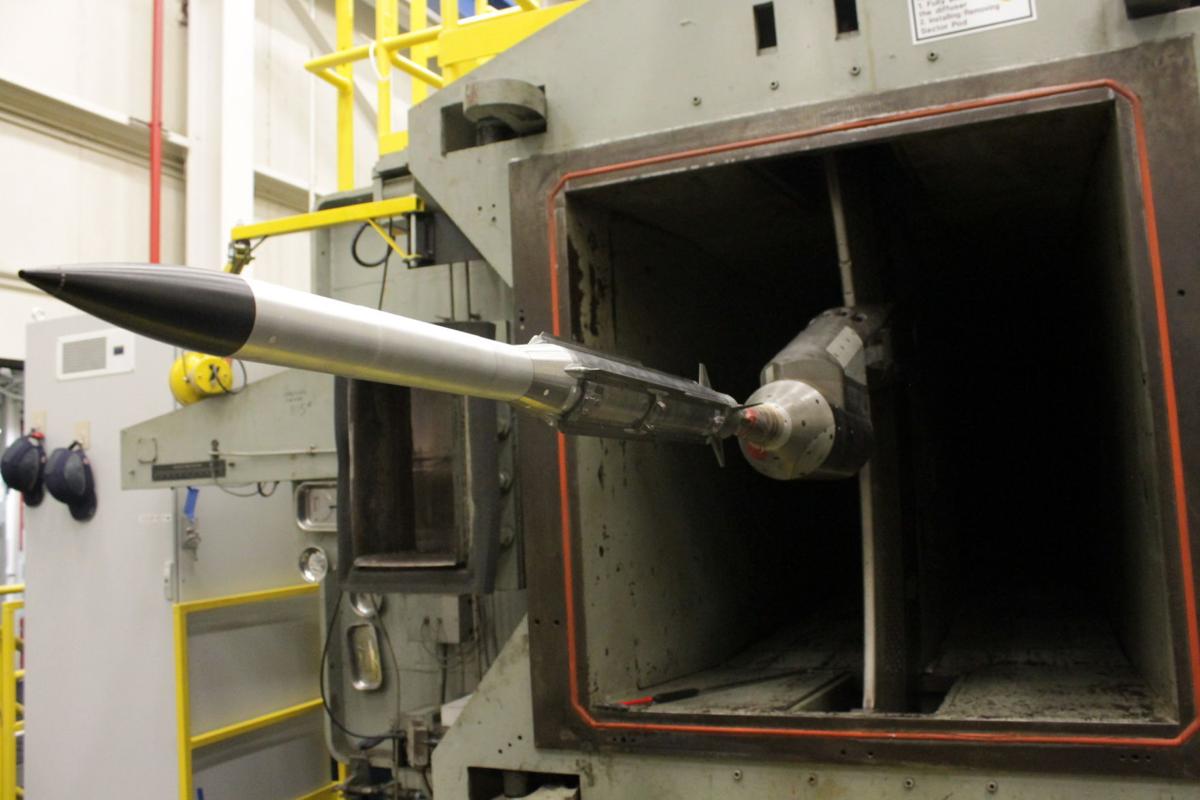A former engineer at ÃÛèÖÖ±²¥-based Raytheon Missile Systems has pleaded guilty to one federal criminal count of exporting restricted arms information, after admitting he took a company laptop that had weapons data on it on a trip to China in 2018.
In an initial indictment filed under seal in January 2019, Wei Sun, 48, was charged with violating the federal Arms Export Control Act and its implementing regulations, the International Traffic in Arms Regulation, or ITAR.
On Friday, Sun was arraigned on an unsealed, superceding indictment filed on Jan. 29 and changed his plea to guilty on one felony arms-control violation.
U.S. District Court Judge Jacqueline Rateau accepted Sun’s new plea and set a sentencing hearing for April 28.
A single violation of the arms export-control act is punishable by a maximum prison term of 20 years, a fine of up to $1 million and a term of supervised release for up to three years.
People are also reading…
Cameron Morgan, a Scottsdale attorney representing Sun, declined to comment on the case.
During Friday’s hearing the judge noted that prosecutors had agreed to a lower base-level offense for Sun — who has no prior criminal record — and that his sentence would not exceed the low end of the sentencing range.
With reductions for accepting responsibility for the offense and cooperating with the government, Sun faces a potential prison sentence of 46 months, though under the plea deal he could move for a shorter sentence and the court may impose a sentence below the cap.
Sun was arrested in ÃÛèÖÖ±²¥ shortly after the initial indictment was issued and was ordered detained pending trial. He pleaded not guilty to all of the government’s charges at his initial arraignment in March 2019.
Under questioning by the judge in court on Friday, Sun agreed the government could prove that he carried his company laptop to China and it contained restricted information in one file, identified in the plea agreement as a user’s guide to a component of Raytheon’s Advanced Medium Range Air-to-Air Missile (AMRAAM).
A naturalized U.S. citizen, Sun worked as an electrical engineer for Raytheon from 2009 until he was terminated in January 2019.
Sun, who had secret security clearance, allegedly took his company-owned HP laptop with him on a trip that included travel to China in December 2018, even though he had been specifically told not to do so because it contained sensitive, export-controlled information.
Under ITAR, technical data on munitions such as missiles cannot be exported without obtaining a license or written permission from the U.S. State Department.
According to the government’s unsealed complaint, during his trip he used his laptop and Raytheon email account to inform a company official he was resigning his position at Missile Systems to study and work overseas.
After returning, Sun admitted to Raytheon security officials he had taken the company laptop along with him but initially said he had traveled to Singapore and the Philippines, the complaint says.
He later admitted traveling with the laptop to China, Cambodia and Hong Kong, according to the complaint.
A Raytheon Missile Systems official responsible for global trade-law compliance found that Sun’s laptop contained export-controlled data concerning the AMRAAM, as well as a component under development for the the nation’s ground-based ballistic missile defense system, the government complaint states.
The laptop also contained security software that itself was subject to the arms-export controls, the complaint said.
The most recent indictment included one count of violating ITAR for each of five files found to contain export-controlled information.
Raytheon has declined to comment on the case, referring questions to federal officials.









